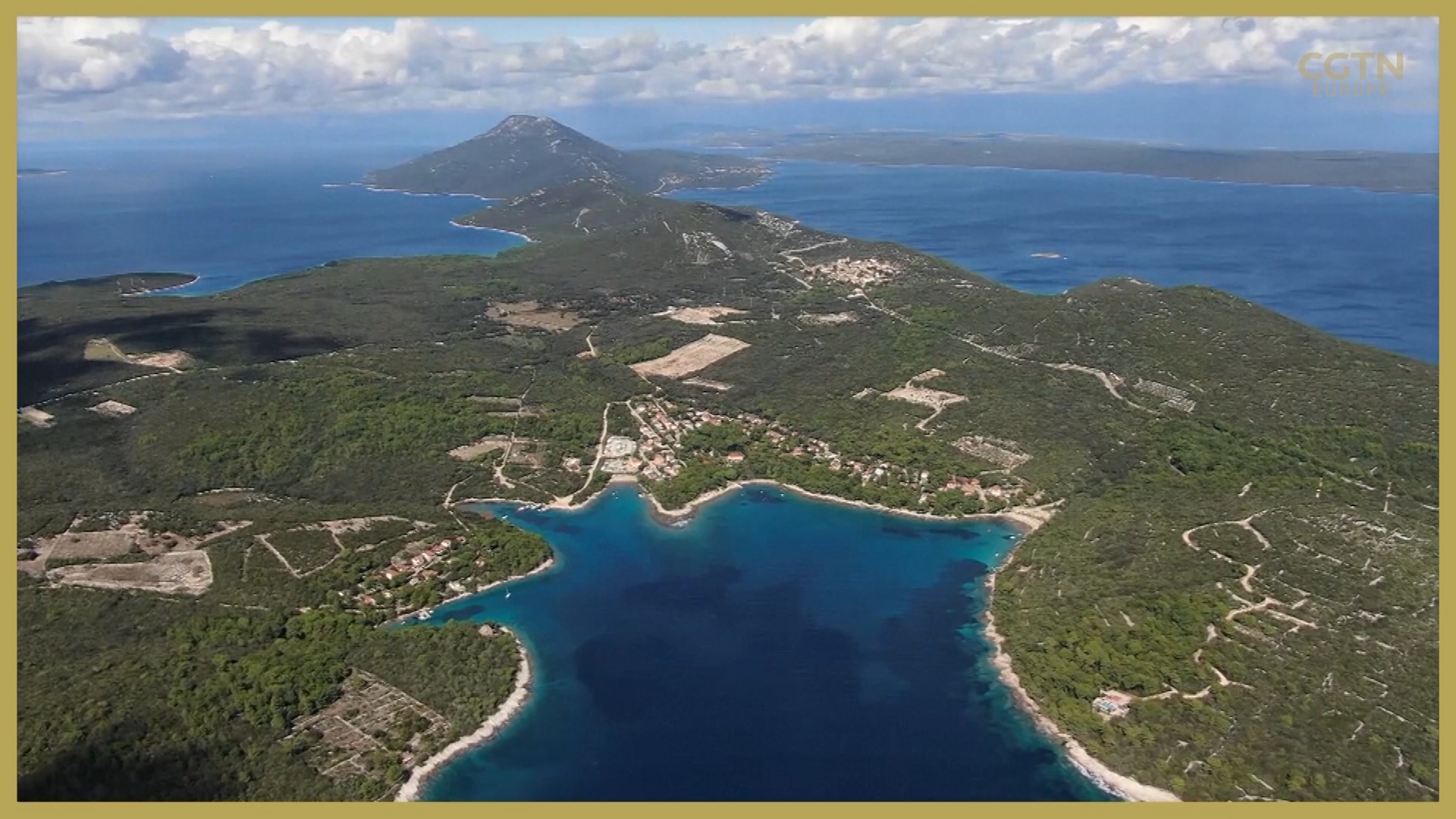
France's President Emmanuel Macron speaks during the High Level Segment session of the One Ocean Summit, in Brest France, February 11, 2022/Ludovic Marin/Reuters
France's President Emmanuel Macron speaks during the High Level Segment session of the One Ocean Summit, in Brest France, February 11, 2022/Ludovic Marin/Reuters
France's President Emmanuel Macron has addressed dozens of global leaders for the One Ocean Summit in northwestern France, in the hopes of encouraging more aggressive policies to protect the world's oceans.
A major outcome of the meeting is the Brest Commitments for the Ocean, a non-binding pact that focuses on protecting biodiversity, stopping illegal fishing, and ending plastic pollution.
"The year 2022 will be decisive. So in Brest today, we need to commit and make firm and clear pledges," Macron told attendees. "I will do this on behalf of France, and Europe has a role to play as well."
03:31

Scientists warn that the ocean is a significant regulator of the environment but not enough is being done to preserve it. Marine life is expected to suffer as global temperatures rise and underwater ecosystems struggle to adapt to new conditions.
Those effects can already be seen not far from the One Ocean Summit on the beaches of Brest. Sea birds potter around as tides stay low, occasionally pecking to dig for food below the sand. Yet, as water levels rise and creep further inland, these birds are beginning to find that they have less space to eat.
"If there is a break in the food chain, because of rising water levels and stronger salinization, there is a huge knock-on effect and a disruption across the food chain," said Virginie Antoine, a scientist looking after oceans at the NGO Bretagne Vivante.
"There's less space for these birds to feed themselves and they have to look elsewhere."
Coastal communities across the world could see half of the beaches disappear by the year 2100. In Brittany, the problem is already apparent on outlying islands.
"Islands large and small are going to be wiped out… Ushant island is a perfect example – because even though we've put up a wall to control the ocean level, it's going to disappear," Antione added.
Water levels on the beaches of Brittany have been recorded since the early 1700s. Levels rose slowly in the first 300 years of records, but scientists say that has changed – and in the last two decades it has sped up.

Predictions of the rise in water levels of the coast of France
Predictions of the rise in water levels of the coast of France
The severity of future water rises depends on how high air temperatures go.
In the best-case scenario, ocean levels on France's western coast would go up 39 centimeters (cm) by 2080 – but if temperatures exceed 1.5 degrees, water levels could top 92 cm.
Twenty years down the line, the worst-case scenario could put water levels one meter higher than they are today and wash out many beaches for good.
Cover image: Ludovic Marin/Reuters

